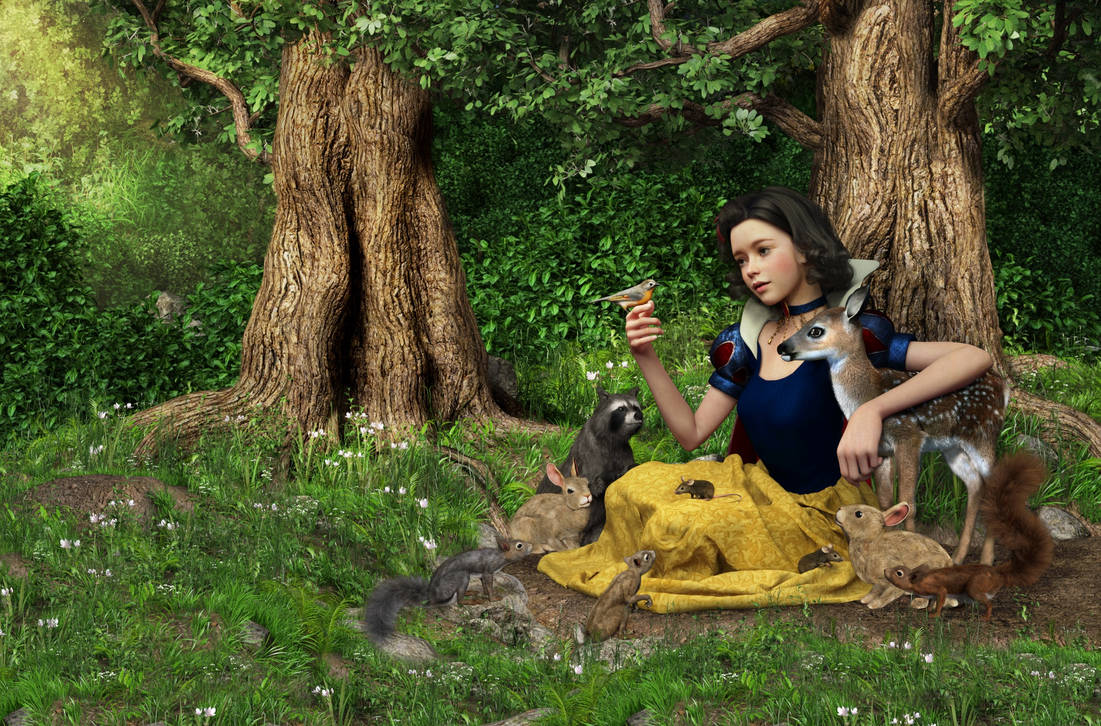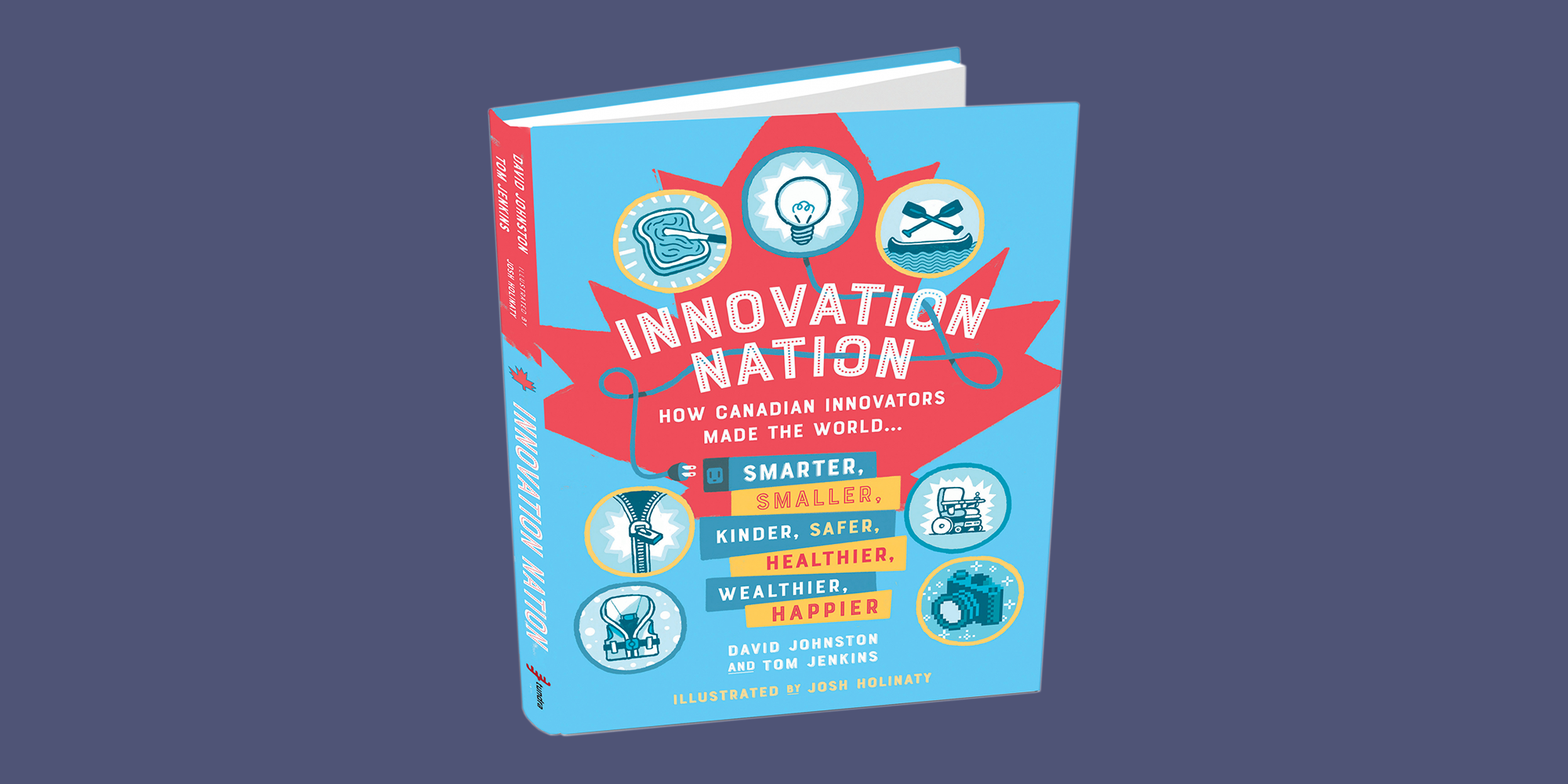Sony’s PSP fared better than anyone could have possibly imagined. Nintendo’s dominance in the handheld market has easily thwarted most challengers, but the PlayStation Portable found its way into the hands of around 80 million people across the world. No, it didn’t outsell the Nintendo DS, but it did give the clamshell portable a scare. Considering the massive success of the PSP, it’s no surprise that the library was chock-full of great games. We’ve rounded up the best PSP games of all time. Wonderful spin-offs of popular PlayStation franchises were plentiful during the the PSP’s run, as were charming new franchises such as LocoRoco and Patapon. Our picks for the 20 best PSP games are listed in alphabetical order.
For more modern PlayStation recommendations, check out our roundups of the best PS5 games and best PS4 games. If handheld gaming is what you’re eyeing, take a look at our list of the best Nintendo Switch games.
Burnout Legends

As we noted above, the PSP was a great place to play portable versions of popular console franchises, and 2005’s Burnout Legends was one of the best. Less a fully original game than an on-the-go greatest hits compilation, Criterion Games’ PSP outing packaged some of the best tracks and modes (World Tour, Time Attack, Race, Eliminator, Face-Off, Burning Lap, Pursuit, Crash, and Road Rage) from the three previous Burnout games and 95 unlockable cars for one stellar package. Given that racing games rarely give players full camera control, Burnout Legends was able to skirt some of the issues that other AAA series heading to the handheld faced due to the PSP’s sole pseudo-thumbstick.
See our Burnout Legends review.
Crisis Core: Final Fantasy VII
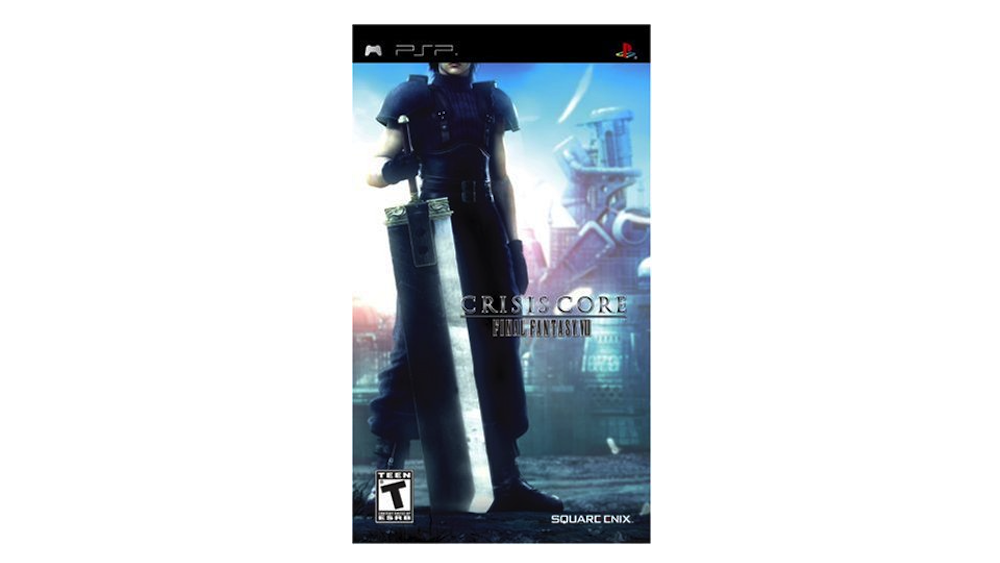
Final Fantasy VII Remake finally launched last year and the long awaited One-Winged Angel carried a few surprises under its wing. The first: It was really, really good! The second: Zack, the protagonist of Crisis Core: Final Fantasy VII, a portable prequel to the original 1997 JRPG, is pretty important. This 2008 PSP spin-off is not quite required reading, but if you’re a fan of Square Enix’s recent return to Midgar, Crisis Core certainly offers interesting background information for the events of the newer game. It’s also a pretty great action-RPG in its own right, with a compelling story, strong voice acting, and a fun and rewarding combat system. Zack played a bit part in the original Final Fantasy VII, but Crisis Core: Final Fantasy VII lets him shine, building out a likable and interesting character, and some of the game’s best story moments involve Zack’s relationship with Cloud, who serves as a moody contrast.
See our Crisis Core: Final Fantasy VII review.
Crush
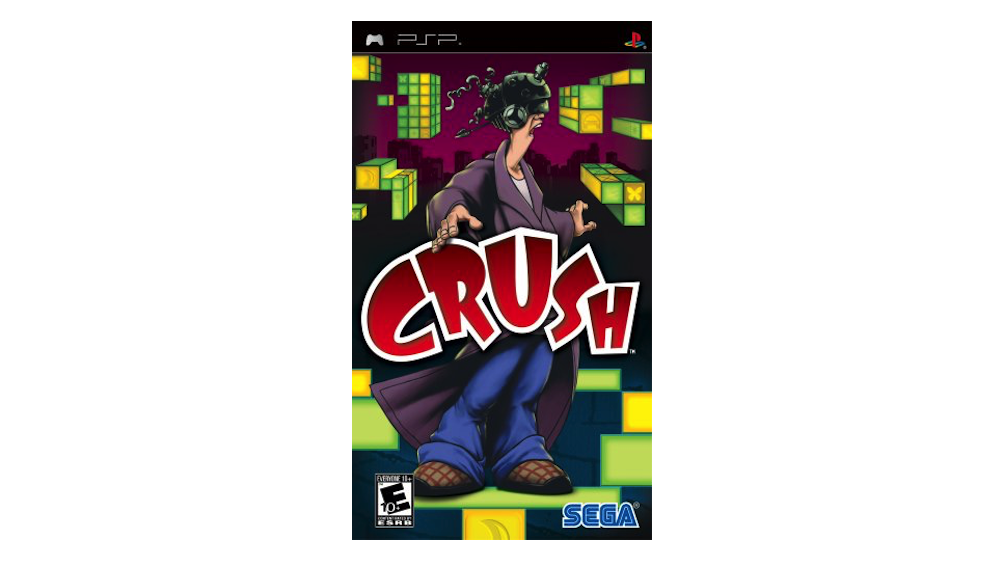
A unique puzzle game that takes cues from the mind-bending art of M.C. Escher, Crush is unlike anything that came before it and, even 14 years later, there still isn’t much like it. This intriguing story casts players as Danny, a young man with insomnia so bad it lands him in an institution. At the hospital, a psychiatrist uses a machine to take Danny inside his own mind, like Psychonauts–if Raz stuck one of those little doors on the back of his own head. Once inside, levels resemble Escher’s pencil drawings and Danny must search them for marbles which will unlock the exit. Like Fez five years later, Crush requires players to switch from the default 3D perspective to a 2D perspective (a mechanic called “crushing”) that allows Danny to navigate once-impassable areas. A decade and a half after release, Crush remains a smart and challenging puzzler that manages to tell an engaging story between brain-breaking levels.
See our Crush review.
Daxter
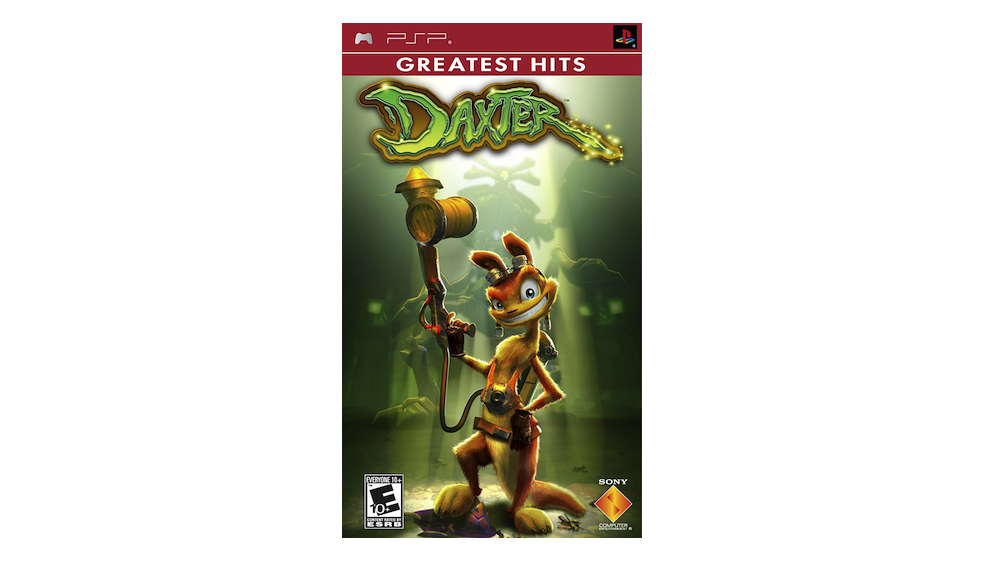
Developed by Ready at Dawn, the studio that would go on to create PS4 title The Order: 1886, Daxter gave the wisecracking Naughty Dog sidekick his own game to run, jump, and flyswat his way through. A prequel to Jak II, this 2006 PSP game saw everyone’s favorite ottsel venturing out on his own while his pal Jak was locked away in prison. Even without Jak, Daxter has plenty to do, wielding a fly swatter and an insecticide sprayer as weapons to take down Haven City’s infestation of bugs. Intriguingly, Daxter’s insecticide sprayer does double duty as a jetpack, echoing the mechanics of Super Mario Sunshine.
See our Daxter review.
Final Fantasy Tactics: The War of the Lions

A portable remake of one of the best tactics games of all time? Yes, please. Though some of the games on this list are no longer available unless you can track down a used PSP and UMD, Final Fantasy Tactics: The War of the Lions received a stellar touch-controlled port to iOS. If you like tactics games, Final Fantasy, and/or political intrigue, Final Fantasy Tactics: The War of the Lions remains unbeatable.
See our Final Fantasy Tactics: War of the Lions review.
God of War: Ghost of Sparta

God of War: Ghost of Sparta is yet another solid portable spin-off to a major PlayStation franchise developed by Ready at Dawn. The studio was an undersung hero for Sony in this era, and Ghost of Sparta is proof that the developer had serious chops. This third-person action game successfully brought the God of War formula to the small screen for the second time, with the camera zooming in for frenetic fights against hordes of enemies and panning back to lend a sense of scope to Kratos’ epic battles against screen-filling enemies. While the controls occasionally frustrate, Ghost of Sparta mostly does a great job of translating the button-mashing combos of the console entries to the scaled-down control scheme of the PSP. And it does all that while providing a visually impressive (for 2010) adventure with graphics roughly on par with the PS2.
See our God of War: Ghost of Sparta review.
Grand Theft Auto: Chinatown Wars
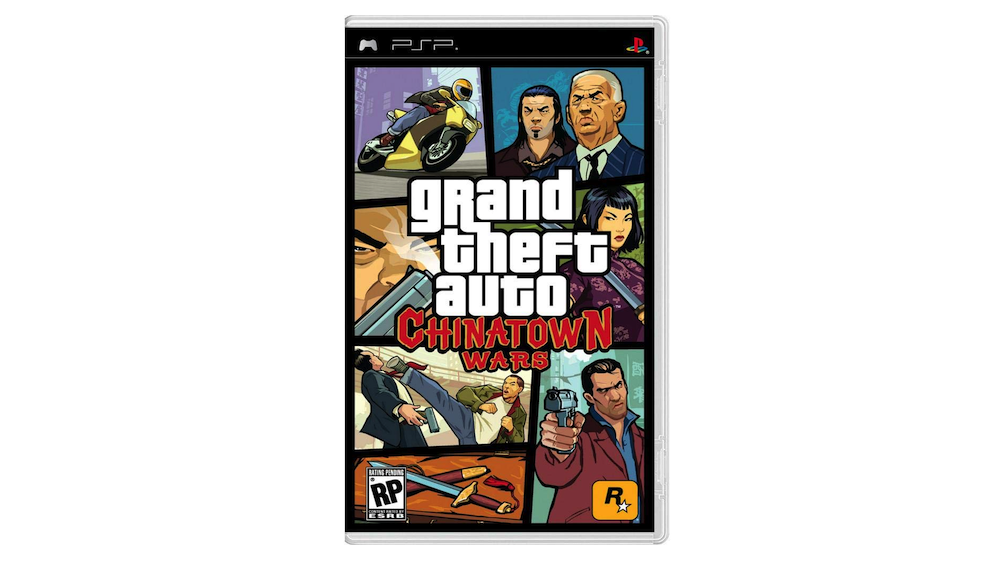
Grand Theft Auto: Chinatown Wars is maybe most significant for bringing the old-school GTA gameplay to a generation of players whose first experience with the satirical open-world series began with 3. While the PS2 trilogy opted for a third-person perspective that focused more on the human characters than the cars they used to get from A to B, Chinatown Wars resurrected the top-down perspective of the first two games in the series to entertaining results.
See our Grand Theft Auto: Chinatown Wars review.
Jeanne d’Arc

A tactical-RPG that gives the historical account of Joan of Arc a decidedly mythic coat of paint, Jeanne d’Arc was one of the best RPGs on the PSP, with solid strategic gameplay and a stylish presentation. Level 5’s take on the French religious warrior balances its fast pace with deep customization, ensuring that Jeanne d’Arc is accessible to newcomers while offering plenty of depth for fans of the genre. And, if a historical RPG sounds a little dry, just know that this variation of Joan of Arc spends her time fighting orc armies.
See our Jeanne d’Arc review.
LocoRoco 2

o 2
A unique platformer that tasks players with tilting the world in order to navigate, LocoRoco 2 builds on what the first game does well, but tweaks some key aspects (like the original’s repetitive gameplay) for one of the best experiences on the system. Colorful visuals, a catchy soundtrack, and widely varying levels and objectives made LocoRoco 2 a must-play platformer on PSP.
See our LocoRoco 2 review.
Lumines
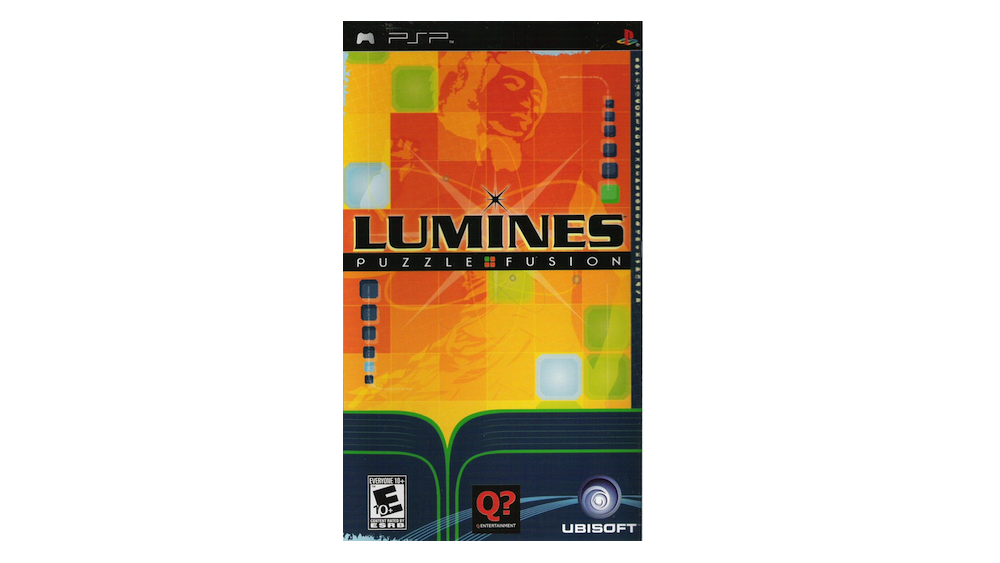
Before he dazzled us (in and out of VR) with Tetris Effect, Tetsuya Mizuguchi designed what is possibly the best falling-block puzzle game not named Tetris. However, rather than creating horizontal lines to make blocks disappear, Lumines asks players to make squares of matching colors. Pair that compellingly playable action with a hypnotic soundtrack and Lumines is an easy way to make hours disappear. Lumines Remastered is available on modern platformers, including Nintendo Switch.
See our Lumines review.
Metal Gear Acid
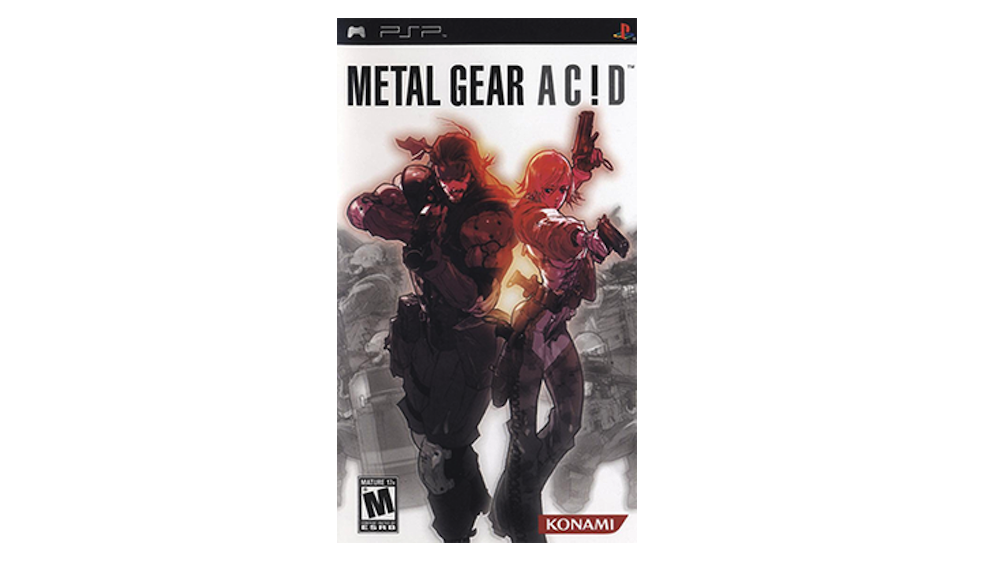
Metal Gear Acid might be a slightly easier pitch in a post-Hearthstone, post-Slay the Spire world than it was upon release in 2005, but its bizarre combination of stealth and card-based mechanics still hasn’t been replicated 16 years later. In this turn-based tactics game, cards control everything. Want to move? You need a card for that. Fire your weapon? You need a card for that. Prior to a mission, you need to build a deck that you think will be effective, and this interplay between stealth and strategy makes for a surprisingly compelling mixture. Though the mechanics may depart from Metal Gear Solid’s bread-and-butter stealth-action gameplay, Acid still tells an entertainingly bonkers story while tasking players with sneaking through the familiar environments series fans have come to know and love.
See our Metal Gear Acid review.
Metal Gear Solid: Peace Walker

Though the Metal Gear Acid games came first, Metal Gear Solid: Peace Walker offered a thoroughly engrossing traditional Metal Gear experience on Sony’s handheld. Set after the events of Metal Gear Solid 3: Snake Eater, Peace Walker takes Big Boss to Costa Rica in the 1970s for the stealth action gameplay that MGS fans have come to expect. Action is seen from a third-person perspective and the graphics are mostly on par with Snake’s PS2 outings, though important story moments swap out the in-engine cutscenes of previous games for stylized graphic novel panels. Between the stealth action, Big Boss can recruit soldiers with specific abilities to join sub-teams in the private mercenary army he’s building at Mother Base, an idea that would be somewhat revisited in Metal Gear Solid V: The Phantom Pain. In addition to the main campaign, Peace Walker featured multiplayer modes and short challenge missions for added variety. Though it was occasionally frustrating due to its sparse checkpoints, Peace Walker was a great Metal Gear story to have on the go.
See our Metal Gear Solid: Peace Walker review.
N+
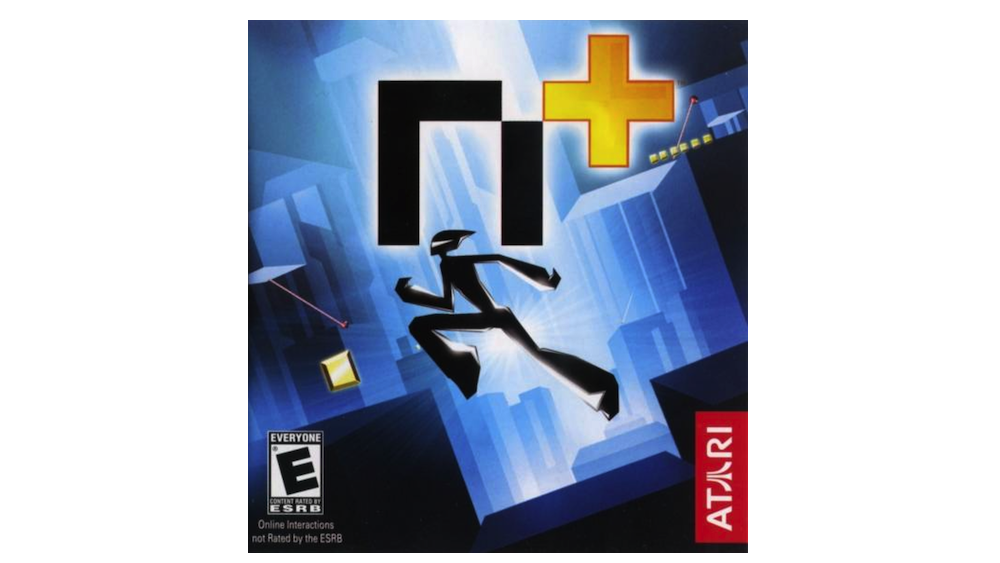
A minimalist platformer starring the world’s most fragile ninja, N+ originally launched as an Xbox Live Arcade game before getting feature-rich ports to the DS and PSP. Levels are cleverly constructed but give players a simple goal: Get from the start to the finish while collecting as much gold as possible along the way. The aesthetic presentation matches this simplicity with a gray background and plain geometric platforms. This simplicity belies a surprising depth, as N+ asks players to pay close attention to their speed in order to build up enough momentum to make jumps, while also managing the distance they fall, as tumbling from too great a height will sh
atter your ninja into pieces. The PSP version featured various multiplayer modes, including Tag and Domination, and added the ability to share created maps with other players. Unfortunately, multiplayer servers were shut down in 2009. Still, though, N+’s single-player remains a blast to play.
See our N+ review.
Patapon 3

A great rhythm game with a stylized aesthetic, Patapon 3 builds on the success of Patapon 2 for one of the PSP’s best games. Like Odama on the GameCube, Patapon 3 combines military command with an unlikely genre. In Odama’s case, that genre was pinball; here, it’s a rhythm game. Each of the face buttons on the PSP correspond to one of four drums, which must be hit in certain combinations to send orders to your army. It’s black-and-white-with-bursts-of-color aesthetic remains striking today.
See our Patapon 3 review.
Puzzle Quest: Challenge of the Warlords
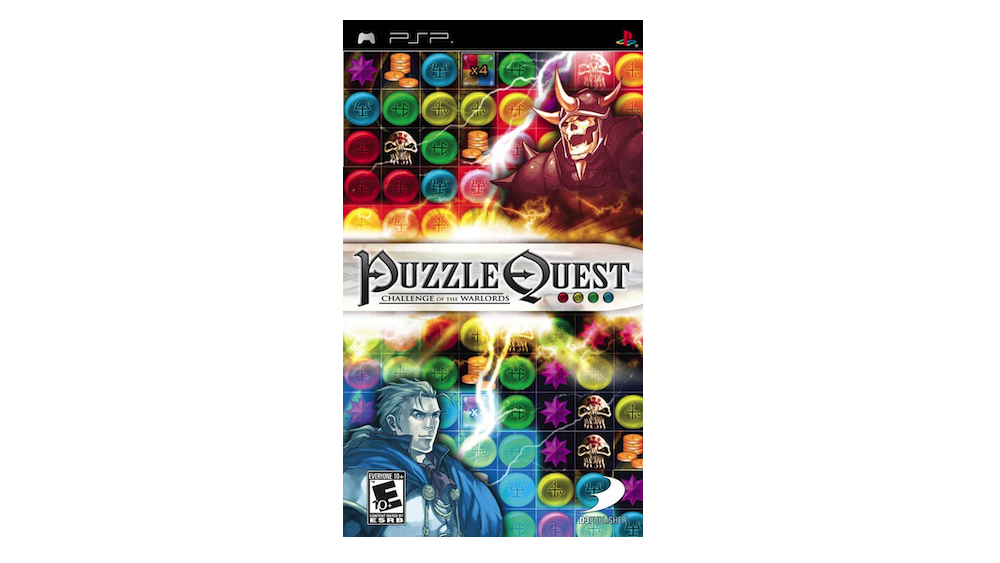
A smart and unique combination of RPG conventions and match-3 puzzle mechanics, Puzzle Quest: Challenge of the Warlords was a unique game upon release in 2007 and there still aren’t many games combining disparate genres quite as effectively. Puzzle Quest: Challenge of the Warlords is structured like a traditional RPG, with an overworld to traverse and lots of enemies waiting to attack. The big difference is that, when those battles break out, gameplay swaps to a puzzle game, a la Candy Crush. It’s a great genre mashup.
See our Puzzle Quest: Challenge of the Warlords review.
Ratchet & Clank: Size Matters
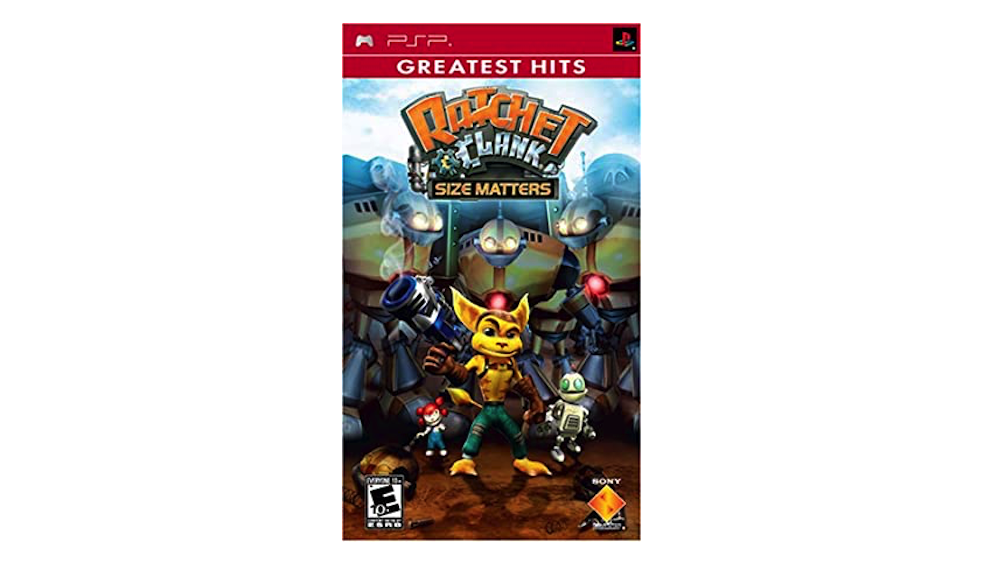
The title of Ratchet & Clank: Size Matters is, of course, a reference to the PlayStation Portable, which is the right size to let you take Ratchet & Clank with you wherever you go. In the duo’s first PSP outing, the last Lombax and his robotic friend’s vacation is interrupted when they meet a young girl named Luna, who is promptly kidnapped. The pair set off to rescue her and, in the process, discover the existence of an ancient race called the Technomites. Developer High Impact Games (comprised of former Insomniac devs) did a solid job of translating the series’ third-person shooter controls to the pareddown button scheme of the PSP, with graphics that were equally impressive. There aren’t too many surprises in store here–would it shock you to find out that Ratchet and Clank get separated at one point and you play as Clank?–but with great action, frantic space battles, and impressive multiplayer modes, Ratchet & Clank: Size Matters was an early jewel in the PSP’s crown.
See our Ratchet & Clank: Size Matters review.
Shin Megami Tensei: Persona 3 Portable
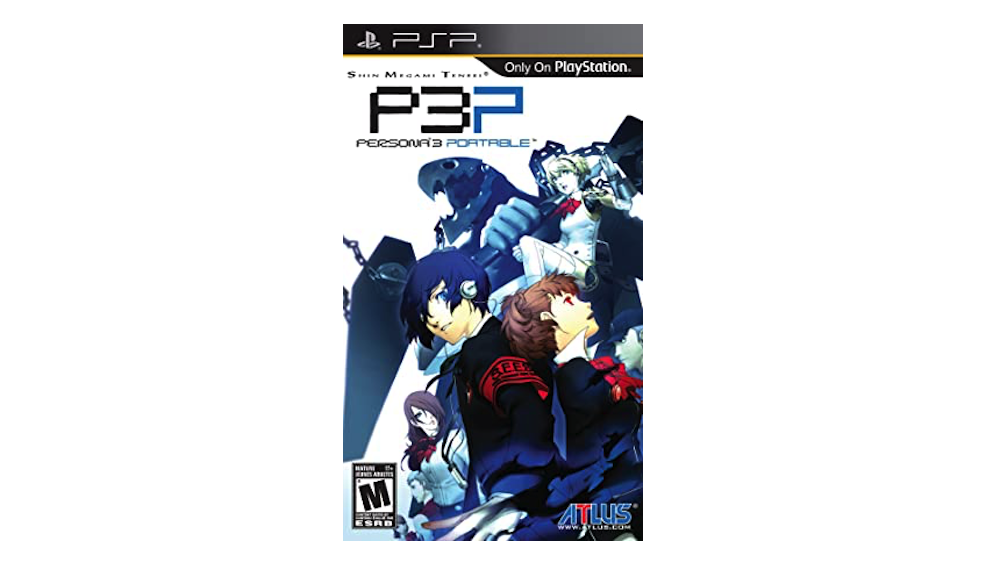
The definitive edition of the Persona series’ breakout game, Shin Megami Tensei: Persona 3 Portable expands on the already excellent Persona 3 with the addition of a playable female character, new music tracks, revisions to the story and battle system, and cameos from Persona 4 and Catherine characters. Whatever version of Persona 3 you play, though, the basics are the same: You’re a new student at a high school where you and your friends team up to fight supernatural monsters, all while maintaining a normal school life.
See our Shin Megami Tensei: Persona 3 Portable review.
Syphon Filter: Dark Mirror
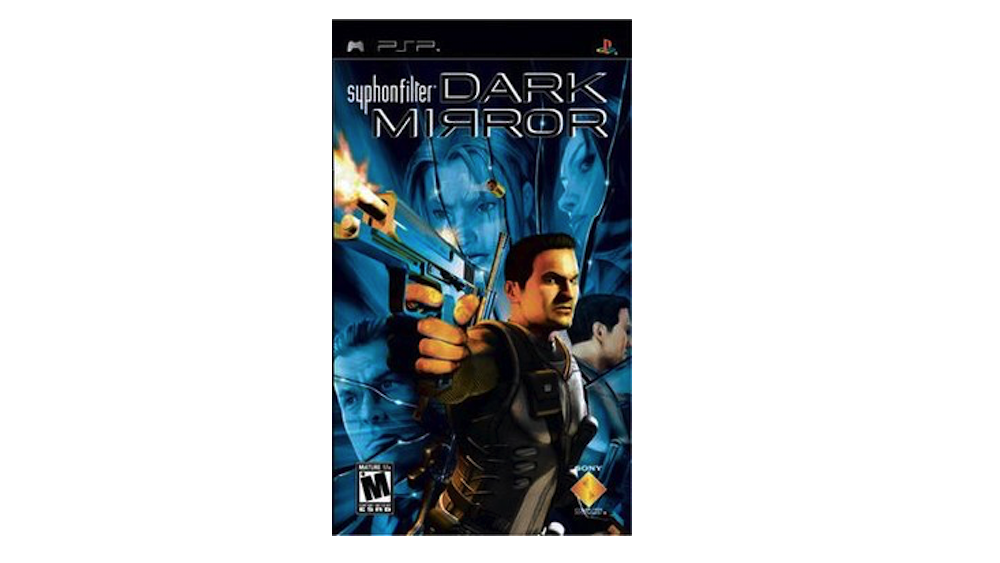
In 2007, Syphon Filter: Dark Mirror brought superspy Gabe Logan to the PSP for espionage action on the go. This third-person stealth game deals out plenty of gadgets for Logan to use across Dark Mirror’s seven missions, including a zipline for traversal, radar to keep tabs on enemies, and explosive and electric darts for taking out enemies. With a seven hour runtime and ample checkpoints, Syphon Filter: Dark Mirror is a fun and fast-paced stealth action game that smartly transplants the series to Sony’s handheld. (It also has historical value if you’re a Days Gone fan: Sony Bend developed this game years before Deacon St. John ever climbed on a Harley).
See our Syphon Filter: Dark Mirror review.
Tactics Ogre: Let Us Cling Together
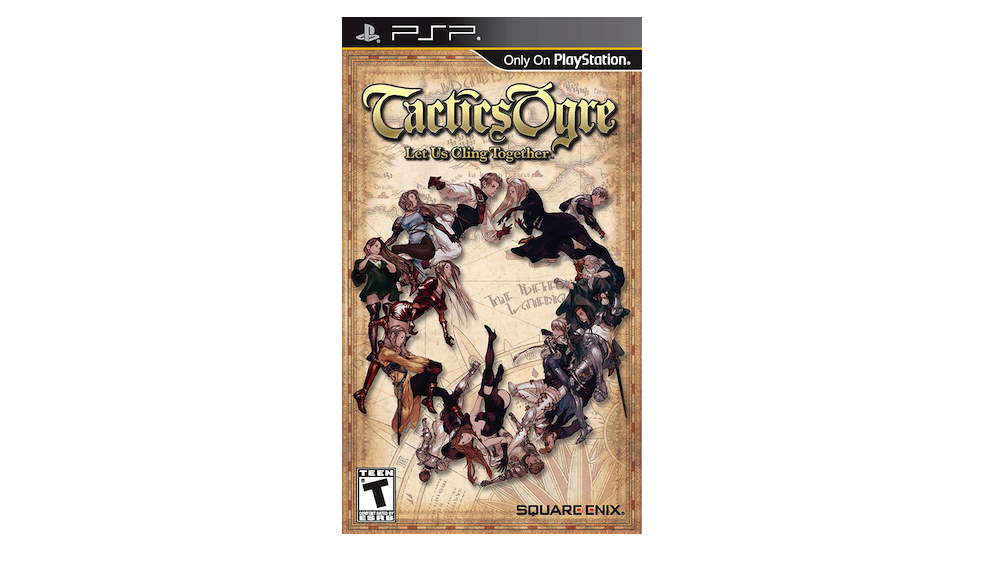
With Final Fantasy Tactics: The War of the Lions, Metal Gear Acid, and Tactics Ogre: Let Us Cling Together, the PlayStation Portable sometimes felt like a console made with tactics fans in mind. A remake of the 1995 SNES JRPG of the same name, this tactics game expands on what the original game did well and cuts out some of the pain points. With a strong story and compulsively playable combat, Tactics Ogre: Let Us Cling Together manages to stand out in a crowded field.
See our Tactics Ogre: Let Us Cling Together review.
Wipeout Pure
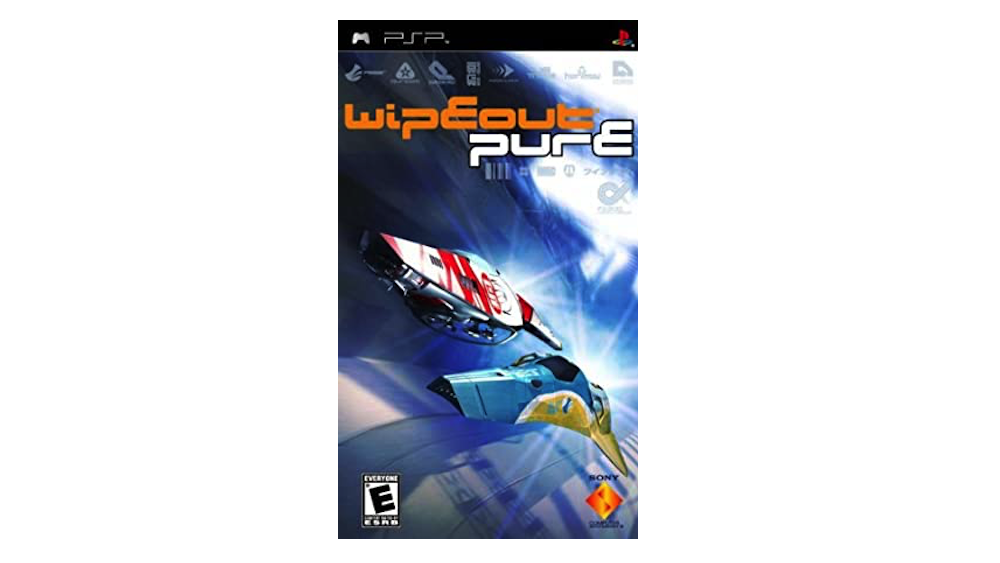
Emphasizing blistering speeds across narrow tracks in futuristic locales, Wipeout Pure brought Sony’s hovercraft racing franchise to the PSP (and 100 years further into the future than past games) with impressive, focused results. Set in the year 2197, Pure’s futuristic art style and electronic music help to build a sense of setting, and each of the game’s 16 tracks evoke a time and place distinctly alien from our own. The biggest difference between races in the present and races in the future? In 2197, it’s fair game to leave landmines in your opponent’s path or blast them off the track with a guided missile. With hairpin turns a plenty and hovercrafts capable of reaching speeds we wouldn’t dream of, navigating Wipeout is as dangerous as it is exhilarating. That’s especially true in Pure, as the pit stops from previous games have been jettisoned so you never need to slow down until you hit the finish line.
See our Wipeout Pure review.
The products discussed here were independently chosen by our editors.
GameSpot may get a share of the revenue if you buy anything featured on our site.

